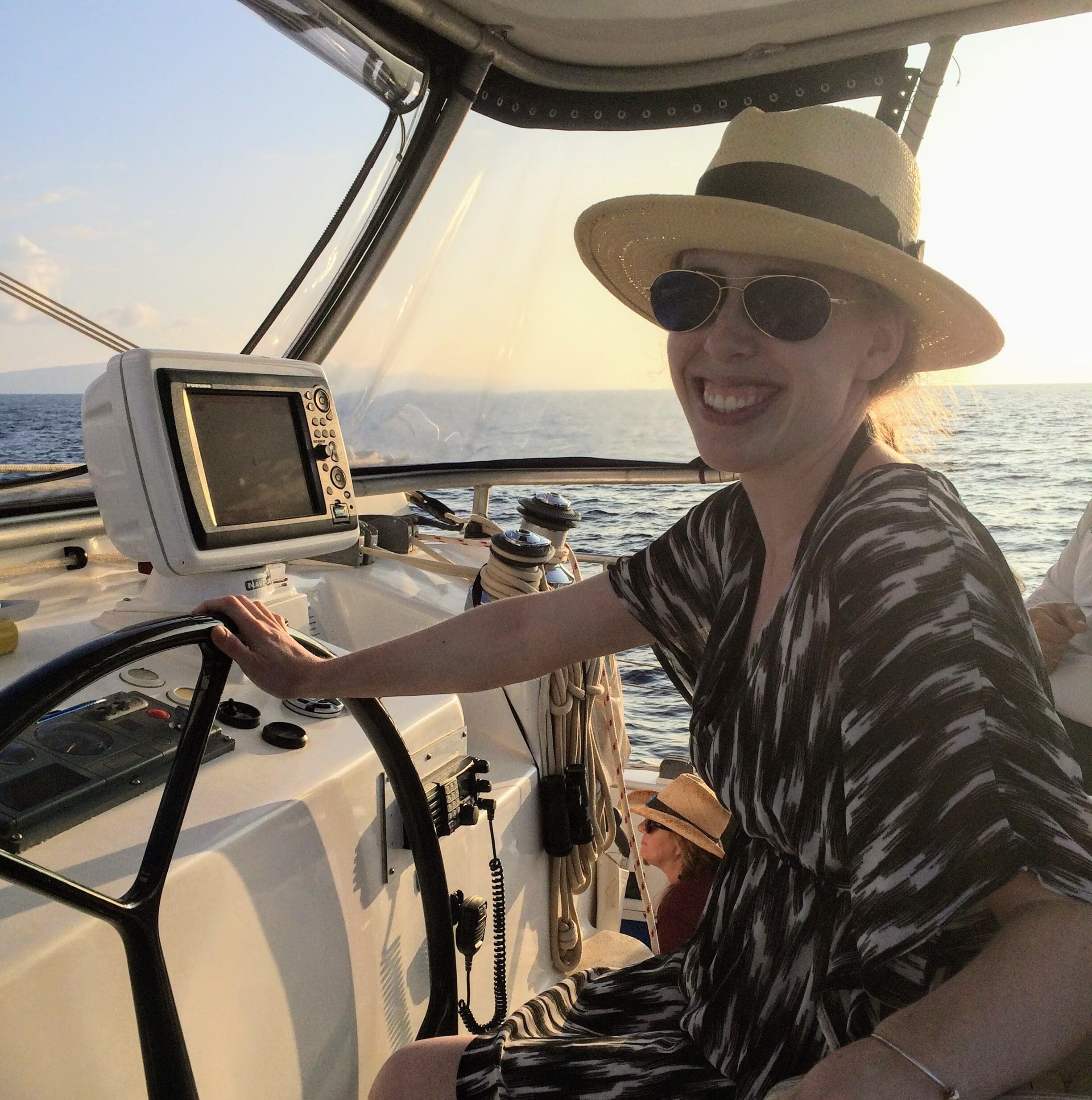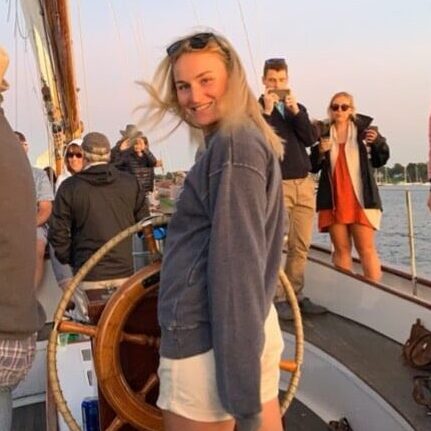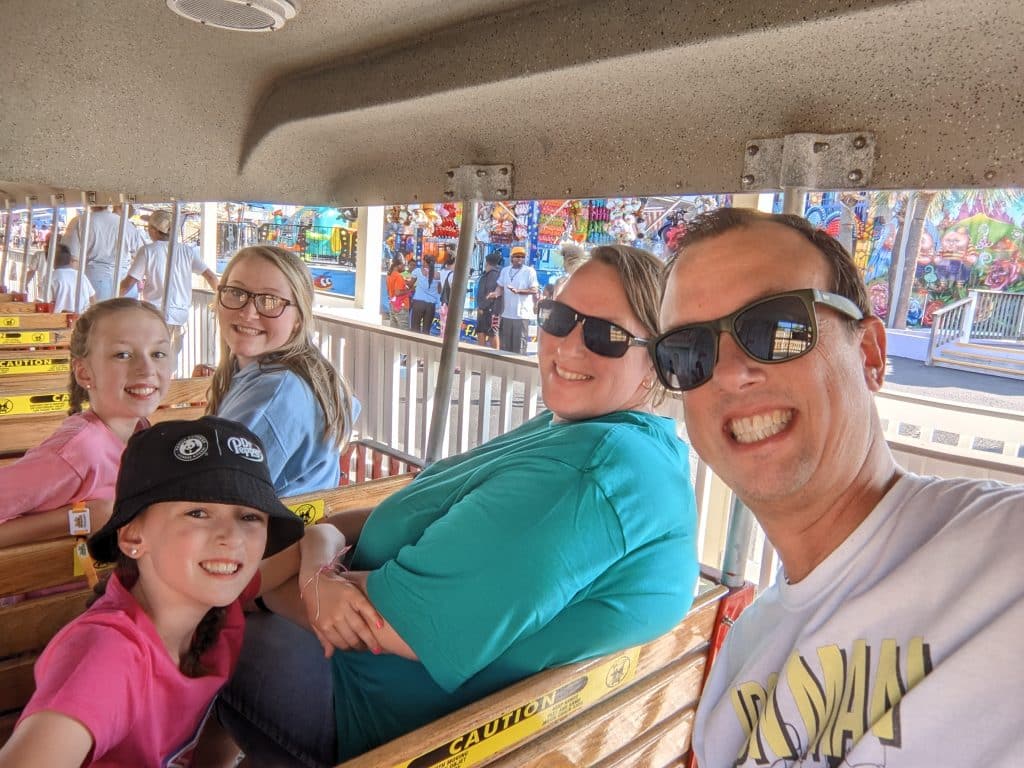One of the ways we will increase awareness of epilepsy is by sharing individual stories related to this disorder. Let’s look beyond statistics and give voice to individual messages of hope, of scientific progress and overcoming challenges. With more knowledge and an increased sense of community, we can all feel like we belong somewhere.
What epilepsy research in being done? How could one mother help find a cure for her son? How can taking small steps lead to achieving bigger goals? What technological advances are being made to support the epilepsy community? These stories and more, in Voices for Epilepsy.
Episode 9: Jared Evans, Virtual Shipmate
Episode 8: Dan Scott, Virtual Shipmate
April 20, 2023
Virtual Shipmate Dan Scott joined Phil this past summer in Portugal to help out with some of our events as well as sail from Porto to Lisbon. Dan has medically controlled epilepsy and his One More Step was to be able to sail more confidently in the Bristol Channel.
Watch part of their conversation as Dan describes ways he overcame his fears.
Episode 7, Part 2: Seizure Rescue Medications
February 27, 2022
Rescue medicines are typically used for seizure clusters, often called acute repetitive seizures, or when seizures are different from a person’s typical pattern, such are more frequent, longer, or more severe. Rescue treatments are taken “as needed” to try and prevent a seizure emergency from occurring.
Recent advances in the delivery of seizure rescue medications have improved their usability and decreased stress for both people with epilepsy and their families.
Episode 7, Part 1: Seizure Action Plans & Seizure First Aid
February 27, 2022
Paula Mueller is a sailor and school nurse. During a recent conversation with Phil, she discusses the importance and use of seizure action plans in a school setting, as well as the significance of training more people in seizure first aid.
Episode 6: Richie Shane
April 5, 2021
Richie Shane started having seizures soon after he finished college. After over 3000 seizures and unsuccessfully trying to control them through medication, he underwent 2 surgeries and has been completely cured. His quality of life has been significantly improved and he embraces this opportunity to live his life to the fullest.
Episode 5: Cassandra Lund

March 10, 2021
Cassandra Lund started having seizures when she was a freshman in college. “I developed a personal motto – You cannot control what happens to you in life, but you can control how you respond to it – and this has helped me come to terms with my diagnosis and regain a sense of autonomy.” Full story »
Episode 4: Trudy Robinson

February 17, 2021
Trudy Robinson had her first seizure at age 17 and was eventually diagnosed with Juvenile Myoclonic Epilepsy (JME). At first she felt confusion, depressed, angry and scared. With time, she has been able to make a beautiful life, full of adventure for herself, while taking precautions to stay safe living with epilepsy. Full story »
Episode 3: Chanda Gunn
January 4, 2020
Chanda Gunn is an accomplished ice hockey player known for overcoming obstacles on and off the rink. When she was nine, she was diagnosed with epilepsy, which was controlled with medication. She now controls her epilepsy with the ketogenic diet and is an advocate for using dietary therapy as treatment. Chanda believes people living with epilepsy should support one another and encourages the community not to let seizures discourage them from chasing their dreams.
Episode 2: Rosalind Picard
November 25, 2020
Rosalind (Roz) Picard is a Professor in the Media Lab at M.I.T. and has a long history of developing technologies to help society. In this interview, Roz discusses the accidental discovery of a method of detecting seizure activity, resulting in an alert sent to a caregiver that could save a person’s life. The next advancement in this technology may include viral forecasting, to detect viruses like the flu – or Covid-19.
Episode 1: Amber Freed
November 11, 2020
Amber Freed, founder of SLC6A1 Connect, provides messages of hope in our first Voices For Epilepsy interview and encourages everyone not to give up. In addition, she gives tips to parents who find that their child has epilepsy. Watch, listen and appreciate the incredible efforts Amber has gone through to energize families and the research community.
The One More Step Challenge: Are you able to take one extra step to do something you haven’t done before, with the necessary safety measures in place?
Celebrate our global community of Virtual Shipmates who joined the One More Step Challenges on a personal voyage towards living a fuller life.
The Sail For Epilepsy voyages, skippered by a person with epilepsy, offer an example of living a fuller life. View the latest updates, photos, and videos sent in from the boat.

